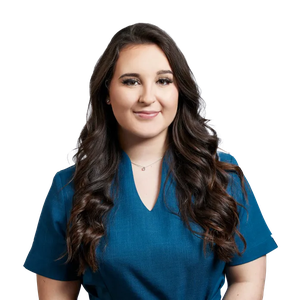

You share more than your home with your family - you share DNA, behaviours, habits and sometimes medical conditions. A family medical history is a record of you and your close relatives' general health and medical conditions.
At Manchester Donors, we want to ensure those hoping to receive your egg donation have the highest chances of successful pregnancy and a healthy child. A family medical history is integral to this process; and we want to help our donors prepare this information, however, sometimes our donors are not sure what information is relevant to their journey.
That's why we've compiled our handy guide to completing your family medical history to support potential egg donors like you on their journey, so you know exactly who to ask, how to start the conversation, and what information you'll need to become an egg donor.
Our governing body, the Human Fertilisation & Embryology Authority, also known as HFEA, states that clinics must select donors based on age, health and medical history. Therefore, we aim to collect a detailed family medical history from you in the early stages of your journey.
Following your first telephone conversation with Steph or Olivia, our dedicated Donor Programme Assistants, we will provide you with a link to an online, easy to complete family medical history form. If you have any questions on what information is relevant then do ask our dedicated team during your call or message the team with any further questions.
When taking a medical history, the HFEA advises that our team needs to be completely satisfied that a potential egg donor does not have a family history of a condition or disease that could be inherited genetically. Any disorders that are hereditary, may lead to developmental problems in a donor-conceived child. Our team will be there to talk you through the process and provide any help you need.
Sometimes, a potential donor may be carrying a condition that unfortunately means they are unable to continue the egg donation process. Some examples are cystic fibrosis and sickle cell carriers.
Being a carrier does not generally have any implications for your health but may have an increased chance of affecting a child born from your donation. We want to ensure our recipients have the highest possible chances of a successful pregnancy, which is why carriers for certain conditions may not be able to donate – even if they're in exceptional health themselves.
Our expert consultants will consider your family's medical history, taking into account your circumstances, and in some cases, they may be happy to progress your application.
If you are not able to continue with your donation due to a genetic condition that you were not aware of, then we will arrange for you to have a conversation with a member of our clinical team to discuss any implications this may have for you and your family.
We suggest that opening an honest dialogue is the most straightforward way to collect the necessary information. You can do this in person, over the phone, by email, or even via social media. We recommend using whatever method is the most comfortable for you.
Sometimes, potential egg donors already thoroughly understand their family's medical history. If this is the case for you, you can use what you already know to fill in your questionnaire – and ask your family for any additional information.
It may make acquiring the information you need easier for you if you plan one-on-one time with certain relatives. Popping over for a brew and catch-up might be the easiest way to get more detailed information without the added distraction of other family members.
Choosing to donate is a wonderful thing, but only some feel comfortable discussing their egg donation journey with their family. In these cases, you can ask your family to provide the information you need without telling them the purpose - or by offering an alternative reason, such as "I need the information for a check-up."
Before you complete a medical history for yourself and your family, our team will make you aware of who you need to collect the information from – as a general rule, you'll need to consider the following:
If you cannot collect the history of specific relatives, in case they have passed away, we recommend checking to see if close family members have the information you need.
If you are adopted or donor-conceived, the good news is that you can still donate your eggs if you can provide the information needed to complete a family medical history. If you are in contact with your biological parents/donor, we ask that you contact them to provide the relevant information.
After completing your family medical history, one of our expert consultants will review the information that you have provided. They will take into account your personal and family medical history and if you're able to become an egg donor.
Once you've been approved, one of our dedicated Donor Programme Assistants will contact you to help you with your next steps.
Visit our website for more information on the egg donation process, and visit our blog to learn how our dedicated Donor Programme Assistants support our donors through the process. Or if you're ready to take the next step in your journey to egg donation, contact Steph or Olivia today at 0161 300 2734, request a call-back or apply online via our website.

Donor Programme Coordinator


Transform a life, by creating one. Become an egg donor today.

Manchester Fertility Services Ltd, trading as Egg Donors UK.
Egg Donors UK is the registered trademark of Manchester Fertility Services Ltd. Company #1902981
We use cookies to give you the best online experience. Let us know if this is OK. We'll use a cookie to save your choice.
You can find out more in our privacy policy, and manage the choices available to you at any time by clicking on 'Privacy Settings' at the bottom of any page.